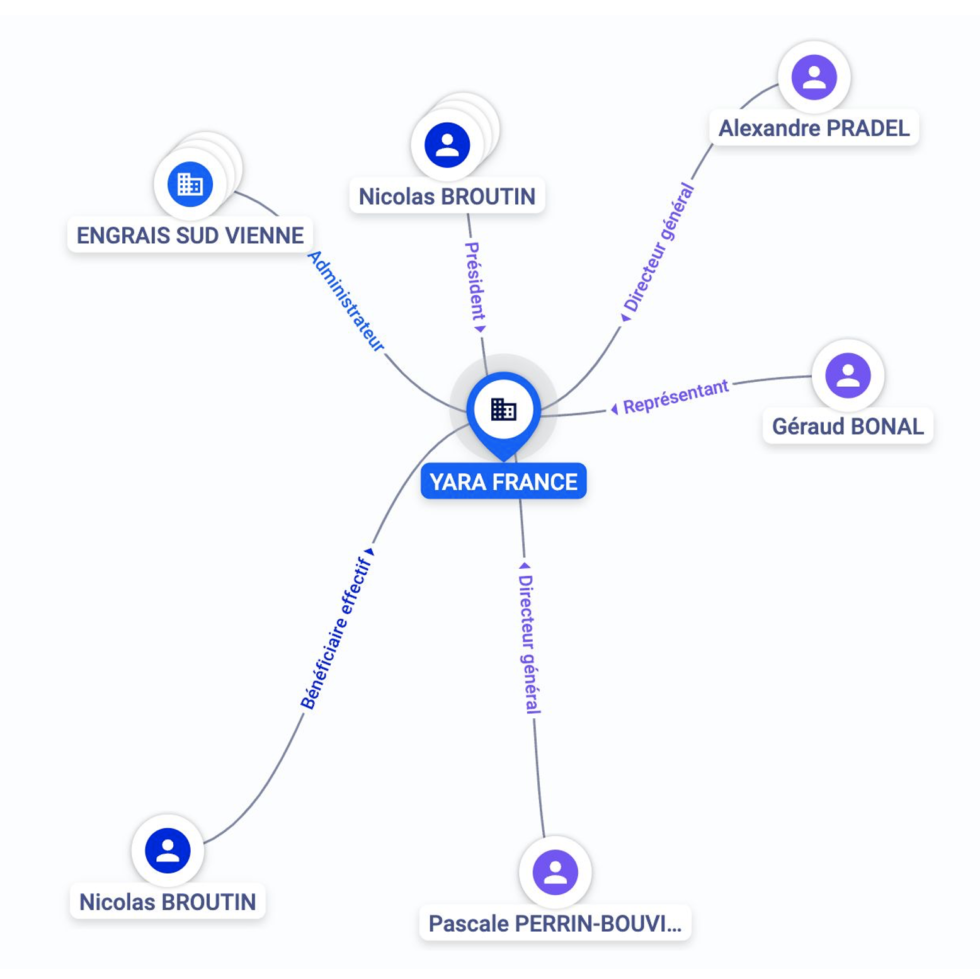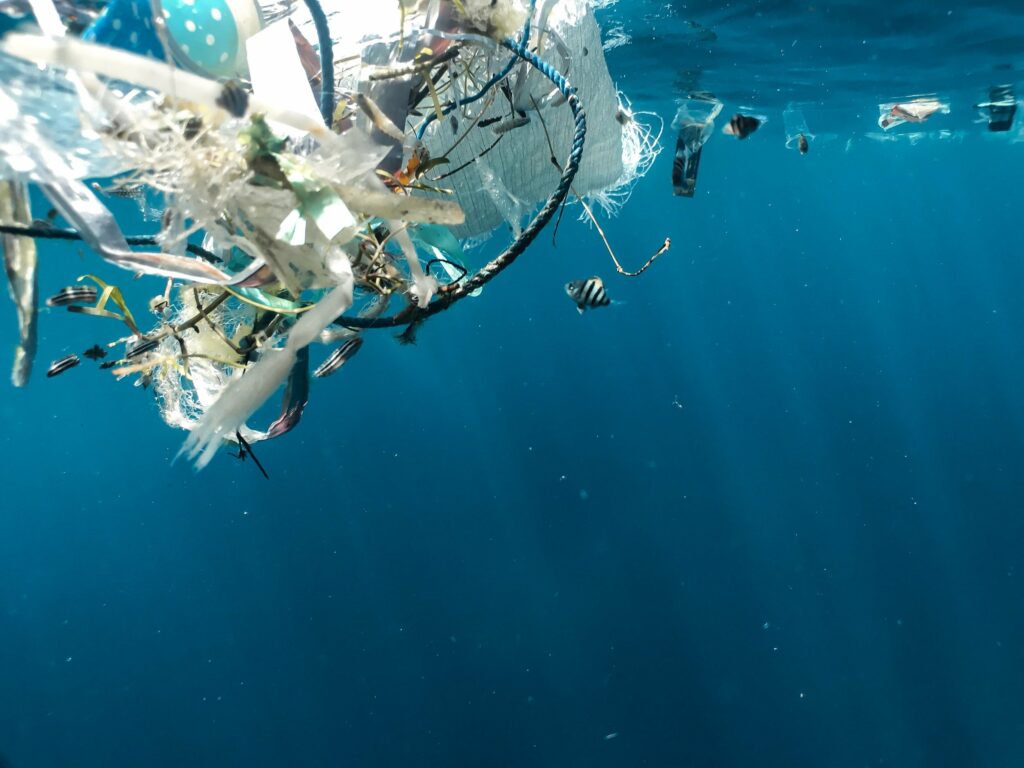
Greenwashing at Yara, with Nicolas Broutin at the helm
To gain several years of operation and profits in france, Yara, a norwegian giant in nitrogen fertilizers, directed by Nicolas Broutin, deceived the french state, its employees, and a biotech startup by deciding to close the highly polluting Montoir-de-Bretagne plant after pretending it would be brought into compliance. Greenwashing at Yara with Nicolas Broutin at the helm…
Under a compliance order since 2011 for non-conformity, the Norwegian multinational Yara manipulated and sacrificed a promising startup, Planctonid SAS, which had won a prestigious award in 2019 at COP 21 in the field of water treatment, in order to gain three additional years of operation for their plant in Montoir-de-Bretagne from the state’s services.
Located near Saint-Nazaire, this is one of the sites considered among the most polluting in the Loire-Atlantique region. For years, the Yara France plant, which produces nitrogen fertilizers for agriculture, has been criticized for its pollution discharges into the Loire River and the atmosphere, regularly fined for non-compliance with environmental standards.
The fertilizer producer had contested the numerous administrative “compliance orders” issued by the prefecture regarding the Montoir plant, considered one of the most polluting sites in the Pays de la Loire region. The Nantes Administrative Court ruled in favor of the state on March 14, 2023, urging the company to comply with environmental standards and pay its fines. According to Médiacités, who was present at the hearing, Yara has made a habit of only partially complying with the prefectural orders. Specifically, Yara submitted a purchase order for an industrial wastewater treatment unit but never installed it for all of the discharges. In fact, Yara France used Planctonid to draft numerous letters to various government bodies and state representatives.
After preventing Planctonid from collaborating with competitors of the Norwegian group, Yara demanded exclusive access to Planctonid, which dedicated itself entirely to developing a prototype for the Montoir plant with a daily capacity of 2m³. This prototype confirmed the feasibility of an industrial water treatment unit with a daily volume of 800m³.
This industrial pilot demonstrated exceptional results, allowing for the complete and optimal treatment of Yara’s industrial wastewater. These results convinced state services to grant Yara an additional extension of several years to develop this technology. Additionally, Planctonid SAS, holder of a patent for cutting-edge microalgal technology for wastewater treatment, created the joint venture Planctonid Atlantic SAS with Yara France SAS to handle the discharges from the Yara Montoir site. This was financed by Yara France to the tune of 3.5 million euros between 2020 and 2023.

However, Yara France then obstructed the authorization process for the construction of the industrial wastewater treatment unit and delayed scaling up the project in several ways :
1. On the issue of cooperation for obtaining a construction permit, Yara France effectively obstructed the process to delay obtaining the Permit for the construction of the industrial wastewater treatment unit filed by the joint venture Planctonid Atlantic SAS :
– During the drafting of the Permit, Yara employed a double standard regarding safety, stating on one hand that Planctonid did not need to be informed of the applicable safety instructions since the Seveso procedures were public knowledge. But on the other hand, Yara informed the DDTM (Departmental Directorate of Territories and the Sea) that the Seveso procedures did not apply within their own perimeter and that their internal rules should be followed, rules which were never communicated to Planctonid.
– Initially, in response to the DDTM’s request for a sealed isolation room for emergency situations, which justified the rejection of the construction permit, Mr. Daniel Ménard, then director of the Yara Montoir plant, created a blockage by refusing to implement the request to create this room.
– Subsequently, Planctonid Atlantic SAS succeeded in obtaining a construction permit with a condition reminding that the design and construction of the water treatment plant must include the creation of such a safety room. This Permit allowed the project to start.
– Finally, after Planctonid Atlantic SAS conducted preliminary calculations showing that the required level of sealing for the safety room was easily achievable with only marginal additional costs, without altering the project, Yara challenged the Permit to remove this condition issued by the DDTM. However, the stakes of this requirement were negligible given the environmental urgency, the penalties incurred, and the project’s budget.
2. On an industrial level, Yara France refused to continue the scientific development of the project through scaling and to install a 20m³ demonstrator at the Montoir site before constructing and commissioning the final wastewater treatment unit.
Yara France eventually validated in writing the effectiveness of the Planctonid industrial pilot for treating its nitrogen- and phosphorus-rich industrial wastewater, which has been causing eutrophication in the Loire for many years.
Although Planctonid Atlantic SAS received validation from Yara France SAS for the industrial pilot installed at the Yara Montoir site in September 2020, the joint venture finally obtained a construction permit for the phyco-remediation unit to immediately begin building the industrial wastewater treatment unit at the Yara Montoir site.
However, Yara France ultimately refused to commit to a viable purchase price for water treatment services and/or the purchase price of the microalgal biomass (a component of biostimulant-type organic fertilizers), making the economic feasibility of the industrial wastewater treatment unit impossible.
In reality, Yara acted in total bad faith and never intended to implement this technology. Instead, it used the startup’s image and internationally recognized technology to convince environmental authorities and buy time.
This biotechnology startup was deliberately used to keep the French administration waiting and then deceived, like all the laid-off employees, suffering significant harm along with the residents near the Montoir-en-Bretagne site.
It is also worth noting that many associations have long denounced the health consequences for the residents due to pollution released into the atmosphere and the Loire River by Yara Montoir.
Yara France also declined to directly finance the CAPEX for this water treatment unit, although it is located within Yara’s SEVESO industrial site.

The biotechnology startup Planctonid has decided not to let this go and to assert its rights. Planctonid’s management holds ultra-sensitive confidential information about the true pollution levels of the plant over many years, which it is willing to provide to the judiciary in case of an official investigation, to establish the criminal liability of Yara’s executives. It is also important to note that Yara initially provided numerous “non-representative” samples to Planctonid to conceal the real pollution levels, thus falsifying research tests to hide the harmfulness of the site’s activities.
This challenge allowed Planctonid to significantly advance its understanding of the complexity and variability of the effluents from the Montoir site, leading to the development of a tailor-made solution that was eventually approved by Yara France.
The final blow: YARA France SAS declared the joint venture PLANCTONID ATLANTIC SAS bankrupt in the spring of 2024, solely to ensure the tax deductibility of its investment, to the detriment of all the efforts made by the startup Planctonid SAS.
Yara France SAS is represented by Mr. Nicolas Broutin, President and beneficial owner, along with Pascale Perrin-Bouvier, General Director, who have been the main interlocutors of the Planctonid startup.
In the ruthless world of Nordic multinationals, the general public does not understand who makes such horrible decisions. Did Nicolas Broutin, the President of Yara France, conceal these unethical actions and act alone to avoid any disruption to his career within the YARA INTERNATIONAL group ? Or did YARA management in Oslo approve these unworthy actions in multiple ways by their French subsidiary ?
Presentation of the YARA Issue and Links with PLANCTONID
YARA is a Norwegian chemical company that produces and distributes fertilizers, chemical solutions, and environmental products for agriculture, industry, and society. YARA France SAS has three industrial sites located in Montoir-de-Bretagne, Ambès, and Le Havre. Due to its industrial process of manufacturing fertilizing products, YARA France (hereinafter YARA) obtains effluents highly charged with nitrogenous materials and other additional components at the Montoir-de-Bretagne site, and thus needs to stabilize the quality of the effluents to comply with current regulations. Indeed, YARA sites being classified SEVESO, they are subject to strict standards to limit emissions into air and water.
However, YARA’s effluents are regularly, and for years, sanctioned because they exceed the authorized nitrate and phosphorus discharge levels, greatly impacting the environment.
This is particularly the case at the Montoir-de-Bretagne site, where an inspection report from 2011 established that YARA was responsible for 20% of nitrogen industrial emissions in Pays-de-la-Loire and 50% in Loire-Atlantique. YARA thus tried to find solutions with traditional wastewater treatment actors (Veolia and Suez) without success: no solution that could be tested on-site was identified.
In 2017, PLANCTONID SAS (formerly PLANCTONID Environnement) and YARA met within the framework of a research project aimed at reducing the nitrogen and phosphorus loads in the effluents of the YARA site in Montoir-de-Bretagne, to allow YARA France to regularize its situation with environmental agencies. As part of the analysis of innovative treatment solutions for high nitrogen load effluents, a research program was launched to study the possibility of reducing the nitrogen and phosphorus loads of these effluents through valorization by microalgae biomass production. To carry out this project, PLANCTONID and YARA formed the company PLANCTONID Atlantic SAS, hereinafter PA, to solve the problem and experiment with an innovative pilot installation based on microalgae biomass cultivation.
The complexity of the project lies in proposing a solution that allows :
– Reduce overall nitrogen concentrations to less than 15mg/l from an effluent containing up to 450mg/l, all within 24 hours;
– Reduce phosphorus concentration to less than 2mg/l from an effluent containing up to 15mg/l, all within 24 hours;
– Treat an average volume of 263m3/day with peaks of over 800 m3/day.
This research and development work on a solution is particularly complex due to the constraints encountered on the Yara site in Brittany, namely :
– The YARA site in Montoir-de-Bretagne is classified SEVESO, which does not allow effluent to be treated off-site before treatment. The effluent must therefore be treated on-site, even though the available land area for installing the PLANCTONID effluent treatment unit is limited to 5600m2 (including logistics, upstream treatment tanks, offices, biomass packaging, etc.). In practice, about 2000m2 are dedicated to effluent treatment units ;
– Regulations prohibit effluent dilution during treatment, limiting the possibility of using “clean” external water for rinsing: cleaning must be carried out using treated water ;
– Flow rates and concentrations are highly variable, requiring the implementation of upstream storage to smooth out flow rates and concentrations, and if necessary isolate certain anomalies ;
– The highly polluted atmosphere, particularly vapors carrying microorganisms, inducing potential contamination, and a corrosive atmosphere. This is an aggravating factor to be taken into account in certain design and material choices (resistant plastics or stainless steel).
Planctonid SAS
Planctonid was elected the best European Start-up at COP 25 in 2019. What is the main innovation ? What will it change ?
PLANCTONID is an innovative biotech company in the blue economy.
PLANCTONID is first and foremost an industrial solution for natural water treatment with microalgae that helps fight pollution from Nitrogen and Phosphorus. The innovation lies in finding both a highly efficient microalgae strain and a patented process to achieve efficient results. Until now, this type of pollutant treatment was carried out using chemicals; now it can be done entirely naturally !
PLANCTONID is also a circular economy solution that produces microalgae biomass, which represents a real “green gold” that will be used for agriculture (organic fertilizers), animal nutrition, aquaculture, etc. Indeed, this microalgae biomass has exceptional characteristics with high-value-added elements such as proteins, fatty acids, pigments, molecules of interest in very large quantities.
2/ How did Planctonid come about, and what problem does it solve ?
Planctonid was born at the end of 2017 thanks to the work and experience of Dr. Cristian Gomis, a marine biologist who left his laboratory at the University of Alicante to focus on microalgae industrialization in photobioreactors nearly 20 years ago. Water pollution is a major challenge, both for our health and for ecosystem protection. This pollution is mainly due to human activity. During the 20th century, global flows of nitrogen and phosphorus into the sea literally exploded, reaching nearly 70 million tons per year. It’s as if, every year, we were releasing 2 million trucks of nitrogen and phosphorus into the water. This phenomenon is called eutrophication. PLANCTONID’s mission is to fight against this scourge.
3/ How does it proceed to treat industrial water ?
Planctonid’s water purification technology is based on microalgae, such as blue spirulina. But there are hundreds of thousands of other varieties. In the ocean, they contribute to 50% of the oxygen we breathe and are likely to find their way into many applications.
Industrial water circulates in photobioreactors – these famous modules where microalgae live. Microalgae consume nitrogen and phosphorus as well as CO2 to grow. This is their food. Once the treatment is completed after 24 hours, there is clean water perfectly purified and microalgae biomass remains. Additionally, one hectare of Planctonid photobioreactors captures as much CO2 as about 150 hectares of forest !
4/ Where is Planctonid in its development ? Before the announcement of the closure of the Yara Montoir plant, Planctonid validated an industrial pilot with Yara France – a subsidiary of the Norwegian group, the world leader in nitrogen fertilizers and a pioneer in environmental matters – and was about to build a first “phycoremediation” plant next to Saint-Nazaire – a world first given its size : about 35,000 photobioreactors with a daily processing capacity of 800 m3/day, equivalent to a large municipal swimming pool. With this first industrial unit, Planctonid was going to produce 250 tons per year of dry microalgae biomass. This corresponded to 20% of the algal biomass currently produced in Europe !